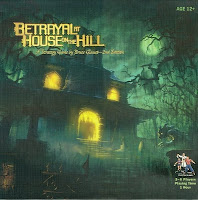Personally I think this is a smart move, but there's been some debate. The arguments seem to be of two general camps: (1) Don't you want to sell as many copies as possible? (2) Don't you want to get your work to as many readers as possible? Both sound reasonable, but let's take a closer look.
SELLING AS MANY COPIES AS POSSIBLE
Makes sense, right? The more copies you sell, the more money you make. Well, anyone who's taken a HS economics course can tell you that's not exactly true. By that logic, you should sell your books for a penny apiece (or free!), but you'd have to sell 500 copies just to buy a Happy Meal. If you managed to sell 10,000 copies a month, it might cover your electric bill. It is easier to sell more copies at lower prices, but there is a point below which it's not worth doing.
Zoe mentions this in the article:
When I sold 6,500 ebooks in June 2010, that was around $2,300. Well, most people can’t live on that, especially after you take out Uncle Sam’s cut.
I’m not saying that everybody or even most indies will be able to make a living anyway, but if it’s your goal, 99 cents might not be the way to go. You only have to sell 677 ebooks in a month to make that same $2,300 if you are selling at $4.95. . . . the math just doesn’t favor 99 cent ebooks for anyone hoping to make a living.
REACHING AS MANY READERS AS POSSIBLE
But what if your goal isn't money? What if you want to reach readers? What if you want to build that ever-elusive platform, so you can sell more books later?
It reminds me a lot of a debate about a year ago when John Scalzi blasted a magazine for paying fiction writers 1/5 of a cent per word. A lot of people felt like he was shutting down "the little guy's markets." As though aspiring writers needed low-or-no-pay markets to break in, work our way up, and build us a platform.
Scalzi's response (paraphrased): If your work is good, then it's worth good money. If your work isn't good, then giving it away for cheap isn't going to make it better, nor will anybody notice.
In the original article, Zoe noted that the 99-cent buyers were largely people looking for bargains, or who hoarded books intending to read them "later." These buyers placed as much value on the books as they had paid for them. Because they paid little, they also paid little attention. These are not readers who will remember you, who will watch for your latest novel in the Kindle store, who will tell their friends they have to pick up your book.
But what if they do? What if your book is so good it rivals Dan Brown and J.A. Konrath, regardless of the price? If that's the case, why the heck are you selling it for 99 cents?! Seriously, if your work is that good, isn't it worth more than that?
WHAT MATTERS TO YOU?
I'm assuming, of course, that what matters to you is earning a living. If you write for the love of writing, then sell for whatever the heck you want.* Otherwise, you have to ask yourself what your work is worth to you. There may be a point at which 99 cents makes economic sense, but I'm not sure.
It takes me a year or more to finish a novel. If people don't want them (and so far, they haven't), I'd rather figure out why and get better, not spend my time promoting a mediocre work for a couple hundred bucks. My opinion: if $4.95 a book isn't selling very much, write better, not cheaper. Don't settle. Your time is worth more than you think.
* Though if you write just for the love of it, why are you selling at all?

















